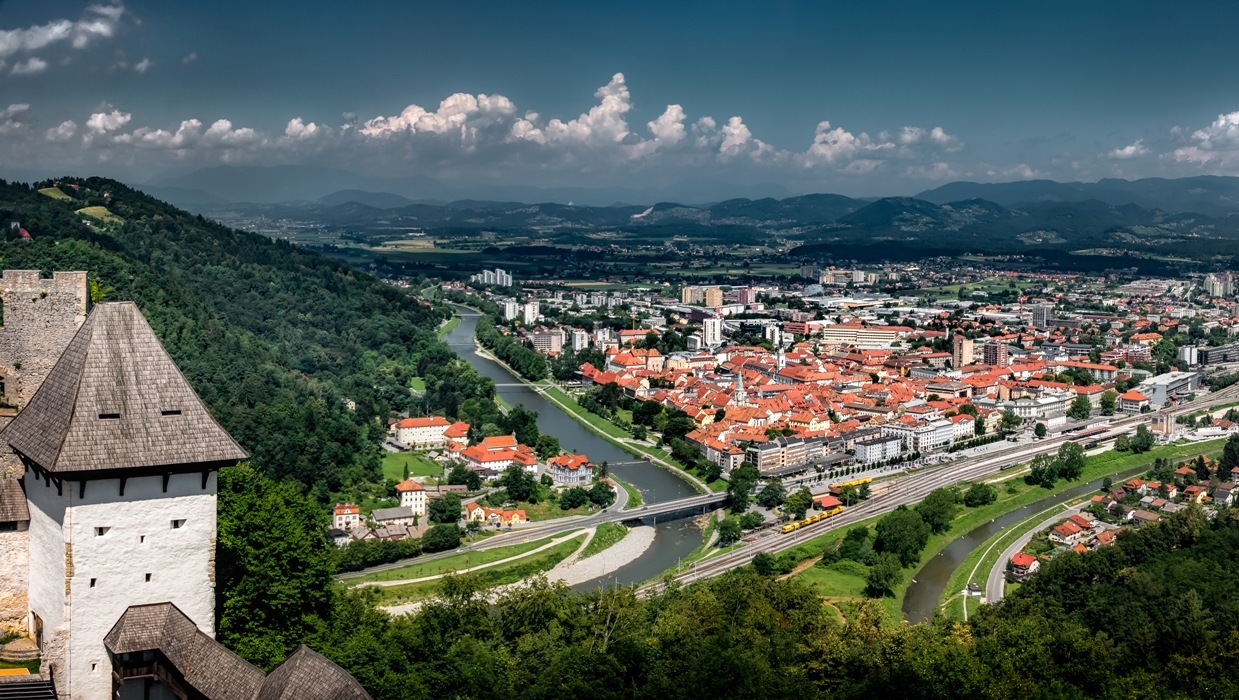By: Andrej Žitnik / Nova24tv.si
In the second round of the mayoral elections in Celje, the young Matija Kovač defeated the favourite Bojan Šrot, and thus won the first mayoral mandate for the far-left Levica party – albeit unofficially, as he was officially an independent candidate. If they want to look into the crystal ball of the next four years of brotherhood and unity in the princely city, they do not have to go far. Just over 100 kilometres away, the Austrian city of Graz elected a communist party to the city council a year ago and appointed the communist mayor Elke Kahr to the post of mayor. The consequences were predictable – Graz turned into Lenin-graz. The city is already facing bankruptcy.
The Austrian city of Graz is approaching insolvency, and the coalition of Communists, Greens, and Social Democrats is to blame. This ultra-left ruling faction ousted the moderate right-wing coalition ÖVP and FPÖ during the September 2021 elections. Now, 14 months later, the city is facing financial collapse, Audit Office Director Hans-Georg Windhaber said in the report. He warned that the city council could lose power and leave the leadership in the hands of the government commissioner. New elections may await the city as early as 2023.
All permits for projects over 2.4 million euros blocked
Windhaber therefore decided to block all permits for projects exceeding 2.4 million euros. Graz financial adviser Manfred Eber of the Communist Party acknowledged the budget problems but expressed “surprise” that Windhaber would issue such a report, as a new medium-term plan is due to be published soon. Eber prefers to blame the disastrous financial situation on the previous city council, under whose rule the debt per inhabitant grew from 3,561 euros in 2017 to 4,783 euros in 2021, but while the previous coalition promised austerity measures after large and urgent infrastructure projects, the communists resorted to powerful redistributive social policies that the city treasury can no longer bear.
Kahr’s predecessor, Günter Riegler of the ÖVP, rejected accusations that his rule had caused a budget hole and instead blamed the Communist-led city council for the empty coffers of Graz. He drew attention to ineffective crisis management, “expensive social measures”, and several million investment projects that were only accepted in October.
Communist mayor Elke Kahr, meanwhile, says it is just rumours
“There is no ‘bankruptcy’ waiting for us, nor ‘new elections’,” said Kahr. “The budget for this year and next year is guaranteed. Important projects will continue to be implemented for the benefit of the residents of Graz. It is no secret that we have inherited considerable burdens from the previous government. In addition, of course, the current cost increases in the energy and construction sectors, rising interest rates and the necessary staff costs are putting the city under pressure, as it is currently in all municipalities in Austria.”
State Governor Christopher Drexler of the ÖVP confirmed that “the seizure of power is not yet a realistic scenario;” such a drastic measure would be taken only if no other measure had succeeded. Drexler emphasised that he was “concerned by the obvious development of events” and emphasised that the same rules for preparing the budget apply to the city of Graz as to all other cities in the region of Styria.
As an internal letter revealed in recent weeks, the debt level would rise from 1.6 billion euros at the end of 2021 to around 3.2 billion euros by 2027 – without consolidation measures. Together with the investments, the city would produce an annual loss of 69 to 121 million euros – just from running costs.
The next act of financial tragedy
The president of the ÖVP club, Daniela Gmeinbauer, on the other hand, criticised the “hopeless overload of the financial city council”. Months ago, they warned and demanded the “correction” of errors. It is time to wake up the city government from “sleeping driving without a driver”.
FPÖ councillor Günter Wagner spoke in a press release about “the next act of financial tragedy”. According to him, Alexis Pascuttini, the president of the municipal council club, at least partly made allowances for the city’s communist authorities: “In one year, the city government did not face reality.” The situation was not rosy before. “We have been hearing about the planned consolidation measures since the summer. What has been done so far?”
Riegler (ÖVP), now responsible for cultural agendas, summed up: “Budget 2023 is not sustainable. Twelve months of time were wasted. Catastrophic finances are not the ÖVP’s legacy. The imbalance is the result of the imbalance of the current budget. We have known since March that the prices of gas and energy products, as well as construction prices, are rising. Nevertheless, you have increased social spending and presented an unsustainable budget.”
